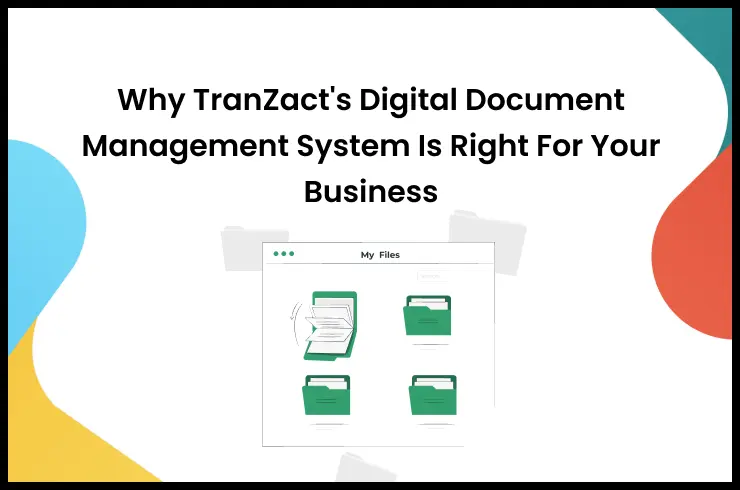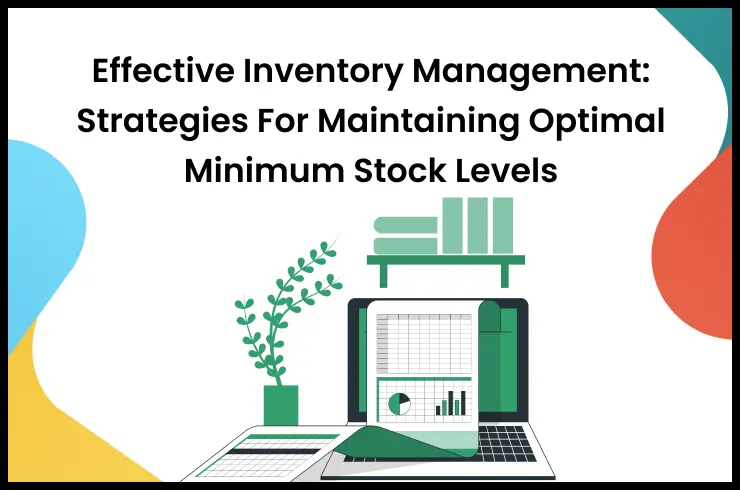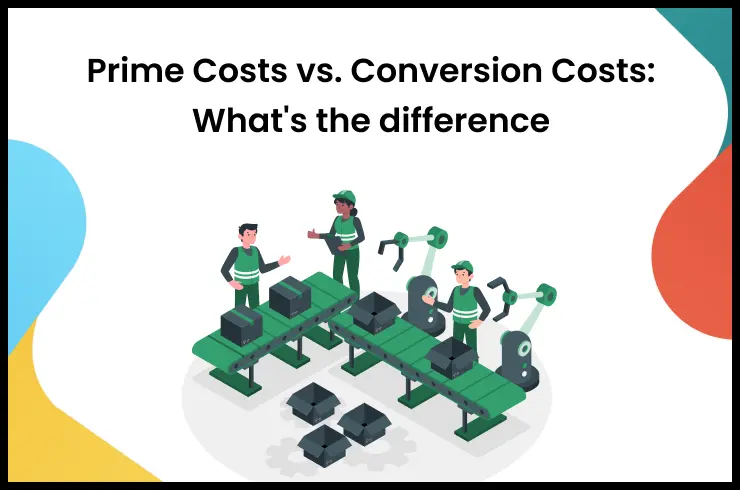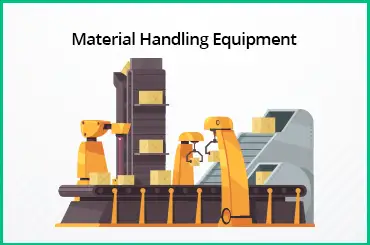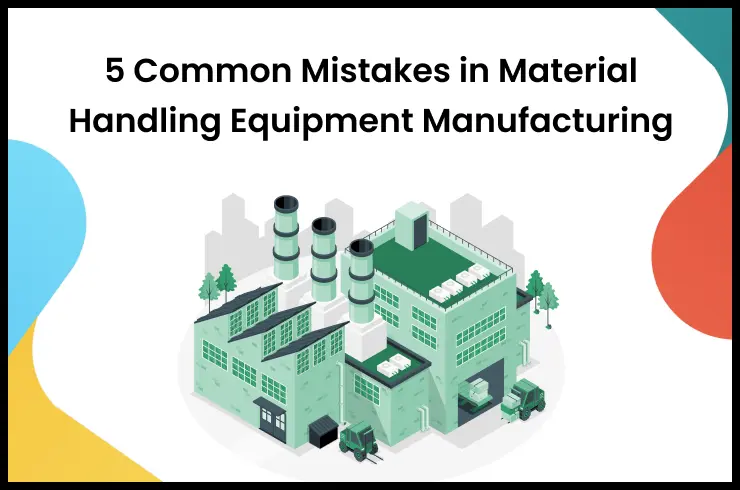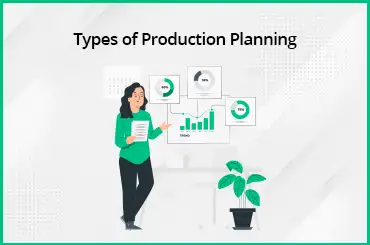Ever picked up a tool or looked at a machine and thought, "Wow, this is different!"?
In this blog, we'll walk you through the unique manufacturing process behind them. We'll explain what is Job Order Production, Job Order systems, cover the methods and techniques, advantages and examples, and the different industries they are used.
Job Order Production: Successful Production Outsourcing
Job order production is a manufacturing process that is used to create special products for specific customer orders. Each product helps individual customer needs. Job Order Production simplifies manufacturing by expertly outsourcing specific tasks, improving overall production success in the following ways:
-
Tailored Solution: Businesses can produce custom-made products. This approach makes sure that each order is perfect and meets the customer's unique needs.
-
Cost Efficiency: It reduces excess inventory and storage costs. Successful job order production can lead to cost savings. Manufacturers can reduce operational costs, such as labour, equipment, and facility expenses, ultimately increasing their revenue.
-
Scalability: It allows manufacturers to adapt to changing market demands. Businesses can scale production up or down without the burden of maintaining in-house production facilities.
-
Expertise Access: Production outsourcing gives manufacturers access to industry expertise and experience. This valuable knowledge can improve product quality. This gives outsourcing manufacturers a competitive edge in their market.
-
Reduced Waste: Job order production typically produces goods in smaller batches, which leads to less waste in comparison to mass production methods. This waste reduction is good for the environment and economy.
-
Core Strengths: Job order production lets businesses focus on their core strengths, such as marketing, sales, and product development while leaving the manufacturing to the experts. This concentration on core strengths can lead to overall business growth and profit
The following list will give an idea about different production planning methods:
| Production Planning Method | Description |
|---|---|
| Master Schedule | A plan based on a comprehensive overview of production needs. |
| Batch Production | Producing items in groups or batches, often for efficiency. |
| Job Order Production | Customizing products for specific orders. |
| Process-Based Learning | Focusing on step-by-step processes for efficient production. |
| Lean Production | Reducing waste and increasing efficiency in operations. |
| Just-in-Time (JIT) | Producing goods as needed to reduce inventory waste. |
Job Order Production System
Job order production is a manufacturing process that is the complete opposite of mass manufacturing. Mass manufacturing produces identical goods in big quantities. In job order production, every product is different.
Advantages Of Job Order Production
Job Order Production offers more flexibility, low cost, exact budgeting, and better manufacturing processes. Here are some key advantages:
1. Sub-Processes for All Goods
Job order productions help to add sub-processes to each master Bill of Material (BOM). One can manage semi-finished goods by optimizing the production process.
2. Define Routing Tasks
Businesses can specify operations like cutting, machining, or finishing within each BOM. With this level of specificity, one can be confident of quality.
This makes sure every stage of the production process is clear-cut. It also makes sure that the job order production is perfect.
3. Efficient Work Order Management
Most job order productions make creating work orders simple. This way, a business owner has total control over one's production schedule.
Businesses can even turn a single or a group of work orders into a job order production. This in turn will reduce the job order costing calculating unit product cost.
4. Quality Assurance
Job order productions give quality delivery the top priority. It first updates the number of complete items in inventory. Then, businesses can collect the goods' testing data.
Businesses can make sure of the quality of the products before delivering them to clients.
Job Order Production Examples
To see the impact of job order production, let's look at a few examples:
1. Custom Furniture Manufacturing
Think of a business that produces upscale furnishings. They get requests for one-of-a-kind furniture with specific style, size, and material recommendations.
They can make these pieces according to customer orders, providing furniture tailored to their client's preferences and requirements.
2. Aerospace Component Manufacturing
In the aerospace sector, accuracy is important. Orders for specialized items like engines or landing gear, are put in place with manufacturers.
Job order manufacturers make sure that these parts follow strict quality and safety standards. This, in turn, makes sure of air travel security.
3. Mechanical Tools and Supplies
Consider a business that produces specialized mechanical tools and equipment. Customers place orders for specific tools with unique features. The manufacturer produces these tools according to the customer's requirements, making sure they meet quality and standards.
4. Electrical and Electronics
In the field of electrical and electronics, job order production is common. Businesses receive orders for customized electronic components or devices. They manufacture these items according to the customer's specifications, making sure they function correctly and follow safety standards.
These examples show how job order production can tailor products to individual customer needs, ensuring quality and satisfaction.
Job Order Production: Everything at One-Stop
Job order production gives everything at one location. Along with Production Management Software, it is a game-changer. It makes operations smooth and improves production procedures. It makes calculating unit product costs easier.
1. Multilevel Bill of Material
Job order production software is unique as it supports many Bills of Material (BOM).
- This means that manufacturers can design products that have many components.
- Each of these components has its routing tasks.
- This capability makes it easier to control every minute detail.
- This is helpful when producing electronics, machines, or any other complex product.
2. Finished Goods Testing
Quality control is important in manufacturing.
- Businesses can record data from finished goods testing using technology.
- It ensures the items are of the most outstanding quality when delivered to the clients.
- It's a preventative strategy that stops damaged goods from delivery.
3. Maximum Productivity
Effective inventory management is important for reducing costs and increasing output.
- With the help of production management software, businesses can improve their inventory levels.
- They can make sure they have the right resources when they need them.
- This reduces waste, lowers storage expenses, and maintains the expertise of their production procedures.
- This process leads to:
- Less Waste
- Low Storage Expenses
- Maintaining quality in all steps of production
Job Order Production Success: An Expert System
TranZact helps businesses with quality job order productions. It also has production management software for manufacturing businesses. With its continuous focus on developing helpful tools for businesses, TranZact is ready to help. For seamless and practical experience, embrace job order production. Use TranZact to upgrade your production today!
FAQ on Job Order Production
1. What Is a Production Planning Process?
The production planning process is a structured approach that helps businesses manage resources, workflow, and inventory. It helps businesses to easily produce goods while controlling costs. Its main goal is to make sure on-time delivery of high-quality products that meet customer demands and expectations.
2. What's the Main Aim of Manufacturing Production Management?
The main aim of manufacturing production management is:
- To ensure on-time order deliveries
- Reduce Inventory Wastage
- Achieve Cost-Efficiency
- Use Automated Production Software
3. Which Tools Are Best for Production Management?
Effective tools for Production Management include:
- forecasting,
- reporting,
- sales-inventory integration, and
- finished goods testing.
TranZact offers 70+ reports on production efficiency, even in its free plan.
4. What Are the Types of Production Planning?
Production planning methods are of the following types:
- Schedule-based
- Batch-oriented
- Job-specific
- Process-Driven
- Tailored to a business's unique needs
5. How Can Lean Production Improve Efficiency?
Lean principles focus on waste reduction and process optimization to improve efficiency, reduce costs, and elevate product quality.
6. What's the Role of Just-in-Time (JIT) Manufacturing in Production Management?
JIT principles make sure of timely production to reduce excess inventory, improving responsiveness to customer demand. JIT principles include:
- Lean production environment
- Emphasizing efficiency
- Cost reductionContinuous improvement throughout the production process.







